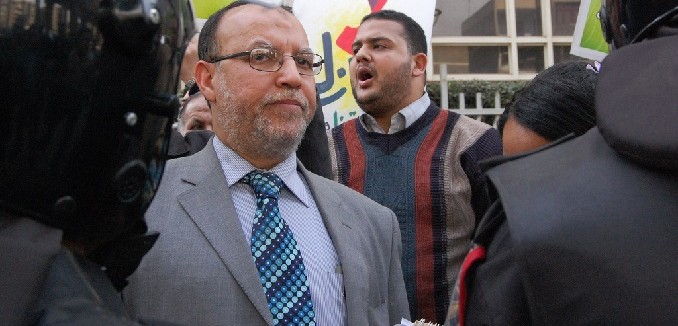Senior Egyptian Muslim Brotherhood leader Essam el-Erian has linked the Boston terror attack, the war in Mali, the war in Syria, and the war in Iraq to unnamed sinister forces that control the media and “funded the violence.” El-Erian was careful to phrase his accusations — posted in Arabic to his Facebook page — as questions. Analysts, journalists, and counter-terror specialists were quick to roll their eyes at the rhetorical move, which is a standard conspiracy trope.
El-Erian’s meaning was not particularly opaque:
@davidkenner its worth a mention that the “who” in his talk is clearly Jews.
— Tom Gara (@tomgara) April 16, 2013
@davidkenner: This isn’t about reading minds; it’s about a simple deductive conclusion. @tomgara
— Zach Novetsky (@ZNovetsky) April 16, 2013
@davidkenner @tomgara Really hard to come up with another interpretation of what else he might plausibly mean, though.
— Gartenstein-Ross (@DaveedGR) April 16, 2013
@daveedgr to be fair, he may have been referring to that other group of people engaged in a media conspiracy against Muslims @davidkenner
— Tom Gara (@tomgara) April 16, 2013
El-Erian’s theory differed markedly from the Brotherhood’s English-language publications regarding the Boston bombing, which expressed sorrow in reaction to the terror act.
The current controversy is not the first time that analysts have called attention to how the Brotherhood crafts differing messages in English and Arabic. Last September, Arabic-language Brotherhood outlets praised violent protests outside the U.S. Embassy in Cairo, while the group’s English-language Twitter account expressed sympathy for U.S. embassy officials. The Cairo embassy tersely and publicly reminded the Brotherhood that U.S. officials follow the organization’s Arabic outlets as well as their English ones.
[Photo: Sarah Carr / Flickr]




